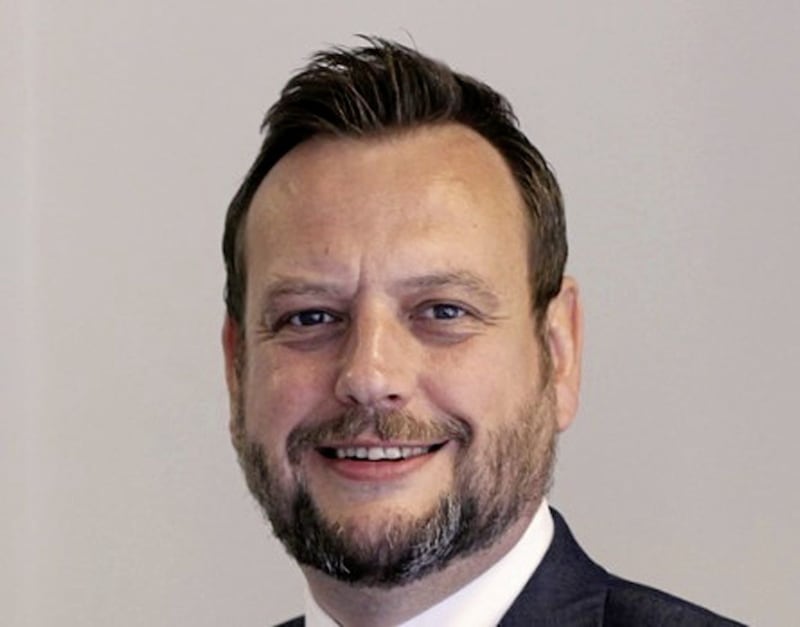An explosion of readily available illegal drugs is tearing rural communities apart as young people suffer with addiction issues.
Recent figures reveal a 98% rise in the number of drug-related deaths in the last 10 years - and rural towns and villages are certainly not immune to those statistics.
The number of deaths due to drugs in the north increased to over 200 in 2020 as the Covid 19 pandemic took hold, while 154 people lost their lives in 2022, almost double the number ten years previously.
While statistics tell one story however, the human factor of those losses of life and the addiction issues becoming more common in rural areas tell a different one.
Rory Carlin, aged 22 and from Strabane, took his own life last year after a battle with drug addiction. His dad Dominic has since raised over £100,000 to raise awareness over addiction issues.
“Drugs are everywhere now,” Dominic told The Irish News.
“Rory had so much going for him, but unfortunately his addiction led to a binge of partying and taking drugs that ultimately led to the loss of his life.
“Rory had so much to live for, you never believe that something like this will ever come to your door.
“In places like Strabane, everybody has the same fear. Sadly, paramilitaries are using their background as a way of selling drugs and people are afraid to speak up about it - it’s a vicious circle.
“You walk into our local graveyard, and it’s full of young lads aged 21, 22, 23 and their deaths are all drug-related.
“Everybody knows who is selling drugs in this town and how easy they are to get. There’s not a child in this area who hasn’t been offered drugs. It’s just out of control.”

The increased use of illegal street prescription drugs in addition to recreational drugs such as cocaine have added an additional element to communities battling issues around addiction.
Joe O’Boyle (23) from Moneymore, Co Derry, had his first exposure to prescription drugs when he was in his late teens. He was admitted to an acute mental health unit when he was in his late teens, and after being discharged without a psychiatric assessment he was given anti-depressants and Benzodiazepines.
“They made me feel unbelievable, I never felt like it before,” Joe says.
“Three days later a prescription came through the letterbox and it was a month’s supply. Straight away I was taking five or six or seven every day.
“It was the one thing that just turned everything off. I finished the month’s worth in three days and obviously couldn’t go back to the doctor. So eventually I resorted to buying them on the street.”
Joe says his addiction issues culminated in an overdose which led to him being brought to hospital by ambulance.
“I woke up the next day and didn’t know where I was at and had an IV in my arm.
“I eventually got out and got home and slept for a solid 24 hours. I woke up and I was still not all there, and the first thing that I did was to take more. It really had a hold on me.
“I don’t think I know one person that hasn’t tried hard drugs. If you walk into a bar and there are six groups of five lads, at least three of those are taking something other than alcohol. It’s everywhere, it is absolutely everywhere.
“There’s not enough help in general, but here it’s even more sparse here.”
Another young man from a rural area, who did not wish to be named, said he lost his job after regularly using three and a half grams of ketamine per day.
“It didn’t just stop at that one drug, everything that I could get my hands on I’d have had it,” the 25-year-old from the Mid Ulster area said.
“I was suspended from a job that I loved and my family relationships broke down.
“When I eventually told my parents about it, they were shocked. They grew up in an environment where this just wasn’t a thing.”
In response to the increased need for addiction services in the west of the region, drug and alcohol addiction charity ASCERT says it is opening new weekly recovery groups in the Omagh area.

The charity’s CEO Gary McMichael said: “There has never been a greater need for addiction services right across Northern Ireland and in the Western Health & Social Care Trust particularly where many people live in rural areas which can prove to be a barrier to accessing support.
“We are seeing substance use problems increasing in rural areas and our services are working hard to extend our reach to people in those locations. 2024 statistics record that the largest health inequality gap in the Western Trust is alcohol specific deaths and the largest inequalities in its most deprived areas are alcohol or drug related.”
Joe is one of the young people that has received support from ASCERT in order to fight his addiction, and while he still says he struggles with it, he’s proud of himself for picking up the phone and asking for help.
“I’m very proud of myself for doing that, and there’s not a day that goes by that I don’t think about that decision that I had to make,” he says.
“It took a long time for me to get there, but I got there and I’m very proud of myself for it.
“The hardest bit is taking that first step and making that one phone call that you need to make.”







